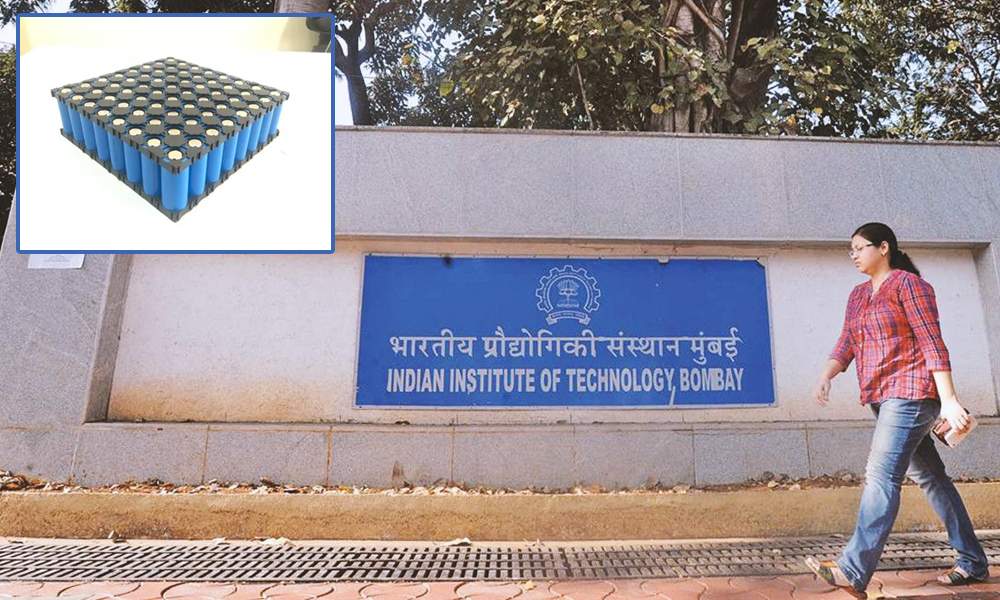
Image Credits: Patrika
IIT Bombay, Shiv Nadar Researchers Develop Sustainable, Cost-Efficient Lithium Batteries
Writer: Reethu Ravi
Reethu, a story teller, a person often found between the pages of a book or contemplating the nuances of life.
India, 26 Aug 2020 3:51 AM GMT
Editor : Prateek Gautam |
A free soul who believes that journalism, apart from politics, should stand for social cause and the environment.
Creatives : Abhishek M
" An engineer by profession, Abhishek is the creative producer of the team, graphic designing is his passion and travelling his get away. In more ways than one, he makes the content visually appealing."
“The research will aid the production of cost-effective, compact, energy-efficient, safe and environment-friendly Li-S batteries, offering a viable alternative to lithium-ion batteries commonly used at present,” Shiv Nadar University said.
Researchers of Indian Institute of Technology (IIT) Bombay and Shiv Nadar University claim to have developed a technology for production of eco-friendly Lithium-Sulfur (Li-S) batteries which will be three times more energy-efficient and cost-effective than the Li-S batteries currently in use.
"The research will aid the production of cost-effective, compact, energy-efficient, safe and environment-friendly Li-S batteries, offering a viable alternative to lithium-ion batteries commonly used at present," Shiv Nadar University said in an official release, according to The Hindu BusinessLine.
For the Li-S battery technology, the researchers used the principles of green chemistry and used by-products from the petroleum industry (Sulfur), agro-waste elements and copolymers such as cardanol (a by-product of cashew nut processing) and eugenol (clove oil) as cathodic materials.
The researchers said that the technology has the potential to help multi-billion dollar industries such as tech gadgets, drones, and electric vehicles (EV) among others.
"The research focusses on principles of green chemistry to find a solution that addresses requirements of industries and the environment, simultaneously. The capability of three times more energy density, coupled with being a significantly safer technology, holds the promise of accelerating the adoption of clean, battery-led energy across multiple domains," Bimlesh Lochab, Associate Professor at Shiv Nadar University, told PTI.
"For example, an electric car with a 400 km range using conventional Lithium-ion batteries can now quadruple its range to 1600 km on a single charge with this technology, while being compact in size and much safer to use than traditional Lithium-ion batteries. To put this in perspective, it could mean driving from Delhi to Mumbai on a single charge and still being left with power," the professor explained.
To use the research for the development of a Li-S battery prototype, Lochab's team has partnered with Sagar Mitra, IIT Bombay's Professor in the Department of Energy Science and Engineering.
Mitra said that while our laptops, mobile phones and even electric cars depend on Li-S battery, they are not efficient in terms of energy storage, are highly expensive, and is extremely hard to recycle.
"The research innovatively used eugenol (derived from clove oil) copolymer, which is also environmentally sustainable, halogen-free, flame-retardant, and reduces the combustible propensities, making the battery remarkably safe to use," Mitra said.
 All section
All section














